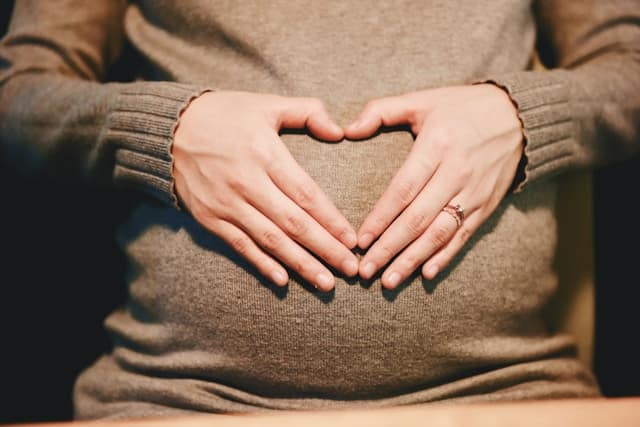How Can UK Pregnant Women Effectively Address and Prevent Iron Deficiency?

Iron deficiency is a prevalent condition that affects many women across the globe, particularly pregnant women. Indeed, it's a cause for concern because it can lead to a variety of health complications such as anaemia, which can potentially harm both the mother and her child. In this comprehensive guide, we will delve into the subject matter, focusing on the link between pregnancy and iron deficiency, the risks involved, and the potential solutions. Through resources like Google Scholar, PubMed, Crossref, and other clinical studies, we are able to provide a well-rounded view of the topic.
Understanding Iron Deficiency and Anaemia
Iron deficiency anaemia is a common and potentially dangerous condition that results from having insufficient iron in your body. This iron is crucial for the production of haemoglobin, a protein in red blood cells that carries oxygen to tissues and organs. A low level of iron effectively means less oxygen is delivered throughout the body, which can lead to symptoms like fatigue, weakness, and shortness of breath.
En parallèle : What Are the Key Considerations for UK Women Considering Pregnancy After Age 40?
In the context of pregnancy, iron deficiency anaemia can lead to premature birth, low birth weight, and even developmental issues in your child. According to a study published on PubMed, around 20% of pregnant women in the UK suffer from iron deficiency anaemia, making it a significant public health concern.
Causes and Risk Factors of Iron Deficiency in Pregnancy
It's important to understand the factors causing iron deficiency during pregnancy. A primary reason is the increased demand for iron in pregnant women. As your body works to support your growing baby, you need extra iron to produce more haemoglobin to supply oxygen to the baby.
Lire également : How Can UK Expectant Mothers Evaluate the Safety of Baby Products on the Market?
Furthermore, women with a diet low in iron-rich foods, those with certain health conditions, or pregnancies involving multiple babies can be at higher risk. And let's not forget that the blood loss during childbirth can exacerbate iron deficiency.
The Consequences of Iron Deficiency Amid Pregnancy
Iron deficiency in pregnancy can lead to serious health risks. Clin Med, a renowned medical journal, highlighted that iron deficiency anaemia increases the risk of preterm delivery and low birth weight. It also heightens the risk of maternal mortality.
On a more personal level, iron deficiency could affect your energy levels, mood, and ability to concentrate. Undoubtedly, the stakes are high and it's crucial to address this issue promptly and effectively.
Iron Supplementation: A Key Solution
Iron supplementation is often recommended to address iron deficiency in pregnant women. The National Institute for Health and Clinical Excellence (NICE) recommends oral iron supplementation for pregnant women with low serum ferritin levels.
However, it's crucial to follow your healthcare provider's instructions when taking iron supplements. Overdosage can lead to constipation or more serious problems.
Besides supplements, incorporating iron-rich foods into your diet such as spinach, lentils, and lean meat can help maintain a healthy iron level.
Early Detection and Regular Monitoring
Prevention is better than cure, and the same goes for iron deficiency. Regular prenatal check-ups are crucial in detecting any signs of iron deficiency early.
Blood tests to measure haemoglobin and serum ferritin levels are common and can help your doctor monitor your iron levels throughout your pregnancy. Having these regular check-ups ensures that any potential deficiency is caught and dealt with in a timely manner.
To sum up, iron deficiency can pose significant risks during pregnancy, but it's manageable and preventable. By understanding the issue, following a balanced diet, taking supplements where necessary, and attending regular prenatal check-ups, you can prevent this deficiency and ensure a healthy pregnancy. Your wellbeing and the health of your baby are paramount – let's take these steps together to safeguard it. Remember, iron deficiency is not a condition to be taken lightly.
A Closer Look at Iron Sources and Iron Absorption
Iron is an essential mineral that our bodies require for optimal functioning. It's important to note that the iron we need comes from the food we eat. There are two types of dietary iron: heme and non-heme. Heme iron is derived from animal sources and is absorbed more efficiently by our bodies. Non-heme iron, found in plant-based foods, is not as easily absorbed. As such, pregnant women, especially vegetarians and vegans, should monitor their iron intake carefully.
Research conducted on PubMed and Google Scholar suggests that an individual's overall iron status affects the absorption of iron. Those with lower iron stores tend to absorb more iron from their diet. Hence, individuals with iron deficiency or anaemia may absorb more iron than those with sufficient iron stores.
Additionally, some food and drink can inhibit iron absorption. For instance, tea, coffee, dairy products, and certain supplements containing calcium or zinc can lower the body's ability to absorb iron. On the other hand, foods rich in vitamin C, such as citrus fruits, can enhance iron absorption. It is recommended to consume these foods together with iron-rich foods to optimise absorption.
Pregnant women should be mindful of their diet and consider taking an appropriate pregnancy multivitamin that includes folic acid and iron, under the guidance of their healthcare provider.
The Importance of Iron in the Postnatal Period
Maintaining a healthy iron status does not end with childbirth. In fact, the postnatal period is equally, if not more, crucial due to the increased demands on a new mother's body.
According to a meta-analysis published on Crossref and PubMed, iron deficiency can affect a new mother’s energy levels, mental health, and even the quality of her breast milk. For instance, iron deficiency can lead to fatigue, affecting a new mother’s ability to care for her baby. Furthermore, there is some evidence to suggest that low iron stores may lead to postnatal depression.
Furthermore, iron is crucial for the baby's development. Breast milk naturally contains iron, but the levels depend on the mother's iron status. If the mother is iron deficient, it could impact her baby's iron stores and potentially their development.
Therefore, it's essential for new mothers to continue with their iron supplementation post-pregnancy and consume a diet rich in iron. Regular check-ups to monitor haemoglobin and serum ferritin levels should also continue into the postnatal period.
Conclusion: Prioritise Iron for a Healthy Pregnancy and Beyond
Iron deficiency is a common issue many pregnant women in the UK face, but with knowledge, consistent monitoring, and appropriate measures, it's preventable and treatable. Pregnant women should educate themselves about the importance of iron, the risks of deficiency, and the methods to maintain healthy iron levels.
Remember, iron supplementation, when recommended by a healthcare provider, can help maintain iron levels. However, complementing it with a diet rich in iron and folic acid, and regular check-ups, is equally important.
Post childbirth, it's equally vital to continue monitoring iron levels to avoid postnatal complications. A healthy, iron-rich diet and appropriate supplementation should continue into the postnatal period.
In conclusion, by prioritizing iron during pregnancy and beyond, you enhance your wellbeing and lay the foundation for your child's healthy development. Iron deficiency is not a condition to be taken lightly. Let's work towards prevention and ensure a healthier future.
